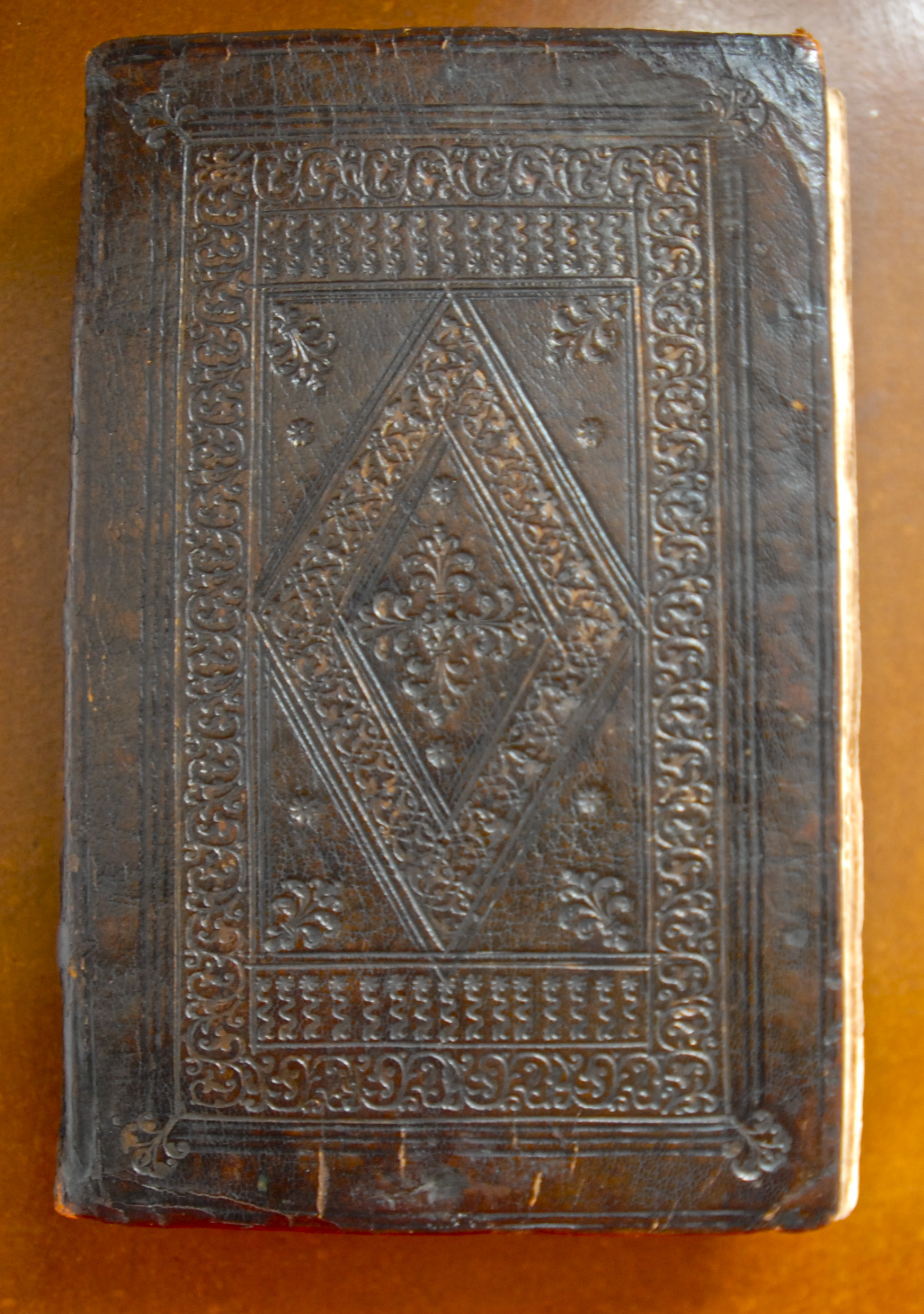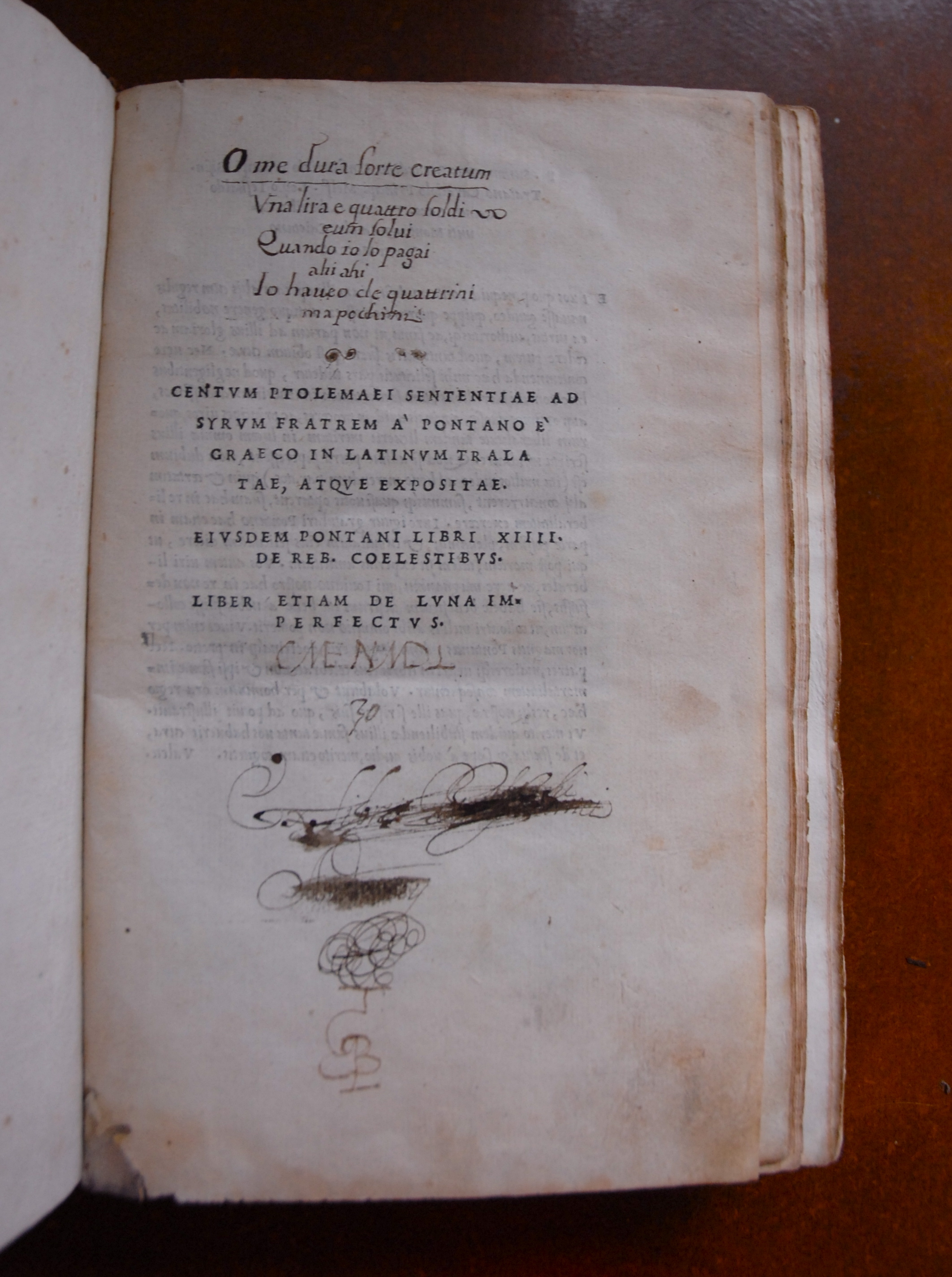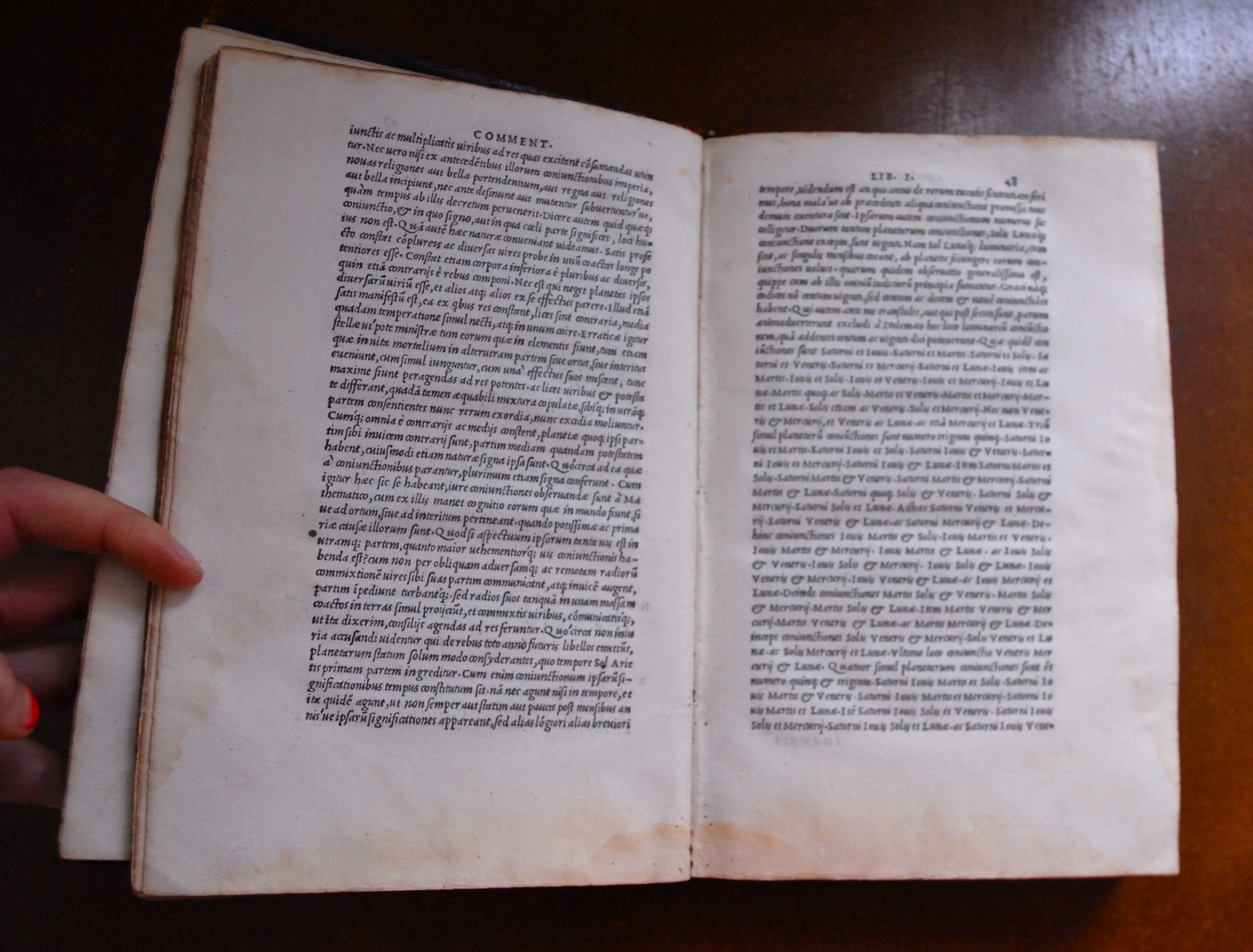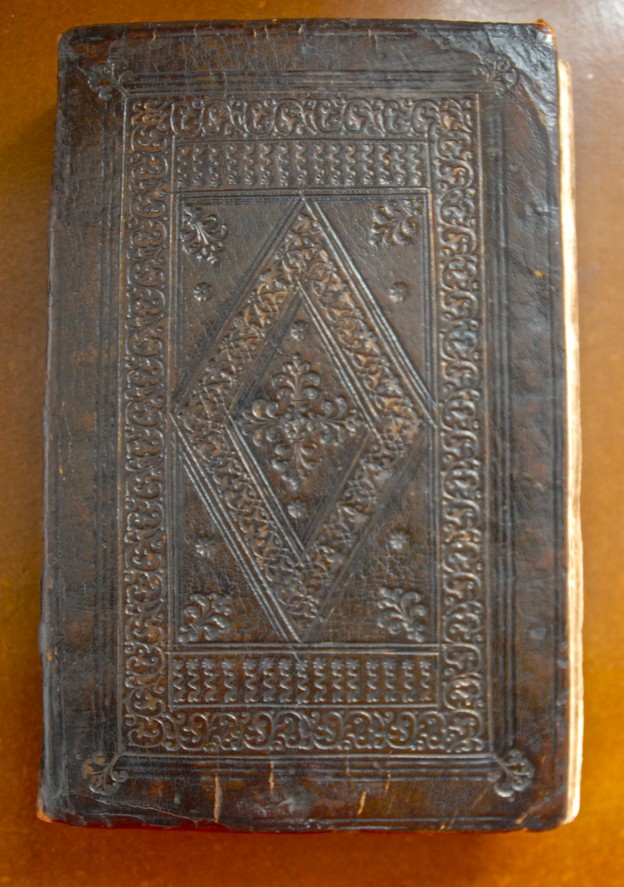PONTANO, Giovanni Gioviano
FINE CONTEMPORARY BLIND-RULED AND GILT MOROCCO BINDING
Centum Ptolemaei sententiae. Eiusdem de reb. coeslestibus. Liber etiam de luna imperfectus
Venice, in aedibus Aldi et Andreae soceri, 1519£3,950.00
Large 8vo. ff. 301 (xix). Italic letter, some Roman and Greek. Large Aldine anchor device to verso of final leaf. Contemporary ms inscriptions and verse to t-p, contemp. ms. marginal scholia to some leaves. Marginal damp-staining throughout, heavier on final leaves, slightly affecting text in places. Some marginal discoloration, treated without washing. Otherwise a good, clean copy in fine contemp. gilt- and blind-tooled brown Roman morocco, panelled sides with multiple fillets and roll-tooled borders, decorated with leaf, arabesque and comet tools, diamond panel at center of sides, spine blind-ruled in compartments, gauffred edges with lace-work pattern, a.e.g., head and foot of spine restored, some corners restored, gilt slightly faded.
First Aldine edition of the astrological writings of Johannes Jovianus Pontanus (Giovanni Gioviano Pontano, 1429-1503), humanist, diplomat, scholar and poet who became the driving force behind the Neapolitan Academy and its official leader after 1471, as well as Naples’ Secretary of State. His was considered by contemporaries as good as, or superior to, his Classical models. Pontanus’ career provides an excellent illustration of the power and prestige which might be attained by men of letters in fifteenth-century Italy.
The present volume consists of Pontanos’ scientific (or proto-scientific and astrological) works: a translation and commentary on the Centum Ptolemaei sententiae, and other, briefer treatises, including De luna and De rebus coelestibus.
The pseudo-Ptolemaic Centum Sententiae, or Centiloquy, is a collection of astrological aphorisms, once thought to have been the work of Claudius Ptolemaeus – from whose work it differs in many key respects. Seventeenth-century English scholars such as Joseph Moxon and William Lilly noted that some ascribed it to the mythical Hermes Trismegistus. More recent speculation has centred around the figure of Abu Ja’far Ahmad ibn Yusuf Ibn Daya (d. c.941), who wrote extensive glosses to the work, and translated it into Hebrew and Latin. While some of the sententiae demonstrate typical astrological vagueness (III: a person skilled in a particular field will have been born under the relevant star; VI, XI: the day and time for a particular activity should be chosen carefully, with reference to one’s horoscope), others are extremely specific (XX: ‘Do not pierce not with iron that part of the body which may be governed by the sign occupied by the Moon’; XXII: ‘Do not either put on or lay aside any garment for the first time, when the Moon is located in Leo’). Pontanus’ commentary is notable for its concern with proving the superiority of astrology over much contemporary ‘science’, and for the socio-psychological rather than theological nature of its speculations. It was immensely influential in contemporary and later astrological and prophetic writing: Nostradamus quotes with approval his first proposition ‘Soli numine divino afflati praesagiunt & spiritu prophetico particularia’ (‘Only those inspired by the divine godhead can prophesy, and only those inspired by the spirit of prophecy can prophesy detailed events’).
BM STC It. p. 542 & 533; Adams P-2215; Brunet IV, 808; Houzeau-Lancaster I, 3644; Ransom 164; Renouard 87:7; Riccardi 303, Cantamessa II 3556 1.In stock





